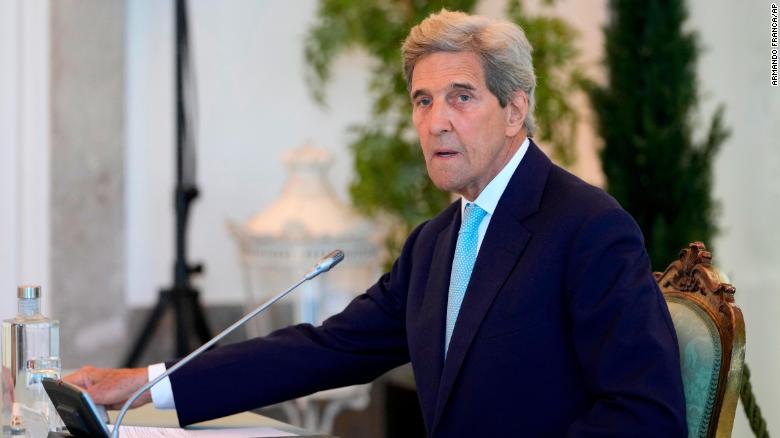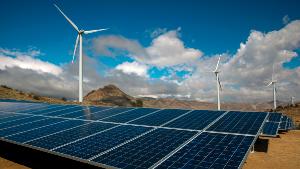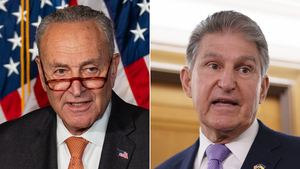The Democrats' $369 billion climate package, the largest such investment in US history, could have significant implications for global greenhouse gas emissions and the US' standing in the world, after months of uncertainty in Congress undermined the Biden administration's claims that "America is back."
US officials are hoping it puts them in a better position for difficult negotiations to come: the international climate talks in Egypt this fall.
The inability of US lawmakers to pass federal climate legislation has for years been a black eye for the country's international delegates at global climate talks. The Trump years were a low point, but even at COP26 in Glasgow last year, President Joe Biden and US Climate Envoy John Kerry's calls to action did not have the necessary legislative weight behind them.
Kerry and Biden now have billions of legislative investments in clean energy to tout when they go to COP27 in November, which US lawmakers and experts say is a gamechanger.
"I think we all felt like we were walking through the desert with no hope of finding water, and the vultures were starting to circle," Heather Zichal, CEO of trade group American Clean Power and a former Obama White House climate official, told CNN. "We're now talking about over $360 billion [of climate investment]. It's really apples and oranges in terms of what you can get."

US Special Presidential Envoy for Climate John Kerry attends Portugal's Council of State in June.
But while the bill is being welcomed overseas, there's an overarching feeling that the US is simply catching up to its allies after years of inaction. Pressure has also increased for the US to take financial responsibility for its historic role in the crisis.
"It's obviously a good thing but it's important not to get carried away," Bob Ward, policy and communications director at the London-based Grantham Research Institute on Climate Change and the Environment, told CNN of the bill.
Ward said the bill gave the pledges the US had already made a "degree of credibility," but what much of the world wants to see the US commit to significant climate finance -- funds to help the most vulnerable countries reduce emissions and adapt to the crisis.
"The issues that are still key in the discussions are not really addressed by this bill -- there's nothing in the bill on international climate finance, which is a bit worrying," Ward said. "Leadership is now required from the rich countries in climate finance."
Climate finance wouldn't typically be included in the kind of tax and climate bill Democrats are preparing to pass, and Biden has asked for climate finance in his 2023 budget. But the US has a history of pushing back against international calls for financial tools. At last year's talks, the US was against a loss-and-damage scheme that would compensate impacted countries for the harm the climate crisis has done.
Still, if the bill is passed, lawmakers and experts said it would represent a serious boost in Biden's ability to make good on his international climate commitments. It would put the US on a path to slash greenhouse gas emissions by 31-44% below 2005 levels by the end of the decade, according to nonpartisan climate think tank Rhodium Group. Biden has pledged to cut US emissions in half by 2030.
"All of a sudden, we can show up at these conferences with not just rhetorical leadership but policy leadership," Democratic Sen. Chris Murphy of Connecticut told CNN. "It makes it a lot harder for laggard countries to claim that the US is talking out of both sides of its mouth -- and use that as an excuse to sit on the sidelines."




